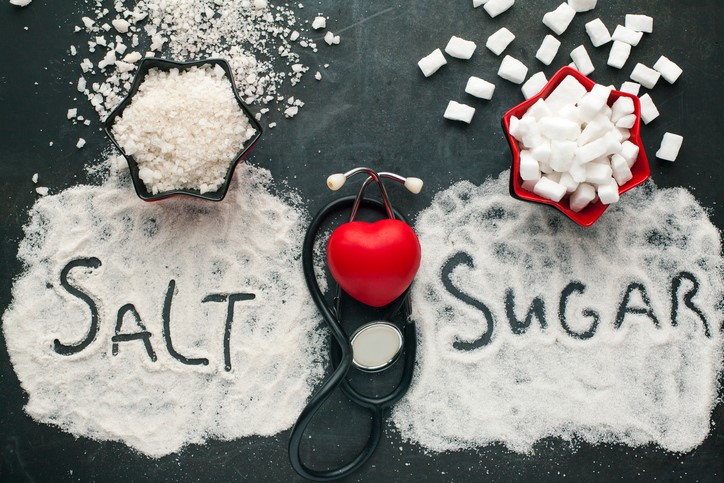[dropcap]W[/dropcap]e all know that too much of something is poisonous. This also applies to consuming too much sugar and salt. High sugar and salt intake is known to increase the risks of cardiovascular diseases.
As a nutritionist, I have realised that most of us know that carbohydrates consist of chapattis, rice, potatoes, ugali, bread and pasta and clients tend to cut down on these foods to reduce weight, which is a good step to take especially refined carbs.
Well, sugar is also a type of carbohydrate, which occurs naturally in a variety of fruits, vegetables and dairy products. They can also be produced commercially and added to foods to heighten sweetness during processing. Sugar taken in high amounts leads to weight gain and other cardiovascular diseases.
Tips to cut back on sugar
• Avoid sugary drinks. One 12-oz soda has about 10 teaspoons of sugar in it, more than the daily recommended limit! Try sparkling water with lemon or a splash of fruit juice.
• Instead of drinking fruit juice, eat a fresh fruit which is also filled with lots of fibre. If you cannot give up on juice, make 100% fruit juice that is not sweetened.
READ: Wonder vegetable that fights many diseases
• Sweeten foods yourself. Buy unsweetened iced tea, plain yogurt, or unflavoured oatmeal, for example, and add sweetener (or fruit) yourself. You’re likely to add far less sweetener than the manufacturer would have.
• Eat naturally sweet food such as fruit, peppers, or natural peanut butter to satisfy your sweet tooth. Keep these foods handy instead of candy or cookies.
Salt on the other hand is essential but we tend to consume too much of it. Salt is composed of sodium and chloride and it’s the sodium that can be harmful to our health. Too much sodium can lead to high blood pressure. For a healthy heart, it is advisable not to eat too much salt.
Try to limit sodium intake to 1,500 to 2,300 mg per day, the equivalent of one teaspoon of salt. Apart from high blood pressure, here are more negative side effects of too much salt intake:
• Kidney disease – kidneys regulate the body’s sodium by getting rid of any excess but if there is too much sodium in the blood stream, the kidneys will not keep up.
• Heart failure due to high blood pressure.• Oedema (fluid retention)• Osteoporosis• Stroke due to high blood pressure.
SEE: Effective ways of fighting cholesterol
READ: How to eat less but remain healthy
Tips to cut back on salt
1. Eat more of fresh foods and prepare them yourself to control your salt intake.
2. Avoid processed meats
3. Use more of healthy herbs and spices for cooking and use them along with lemon juice or vinegar.
4. Read food labels. Go for low salt food alternatives.
5. Watch out for condiments such as ketchup, soy sauce, salad dressing etc they contain sodium.
6. Cut back on salty snacks such as potato chips, nuts, and pretzels.
7. Check labels and choose low-salt or reduced-sodium products, including breakfast cereals.
8. Slowly reduce the salt in your diet to give your taste buds time to adjust.
Although sugar and salt in excess have negative effect on your body, you don’t need to get rid of them from your diet completely. What you need to do is to consume in moderation. Healthy foods choices Eat healthy and live healthy by controlling your sugar and salt intake.













Leave a comment